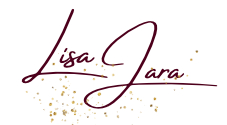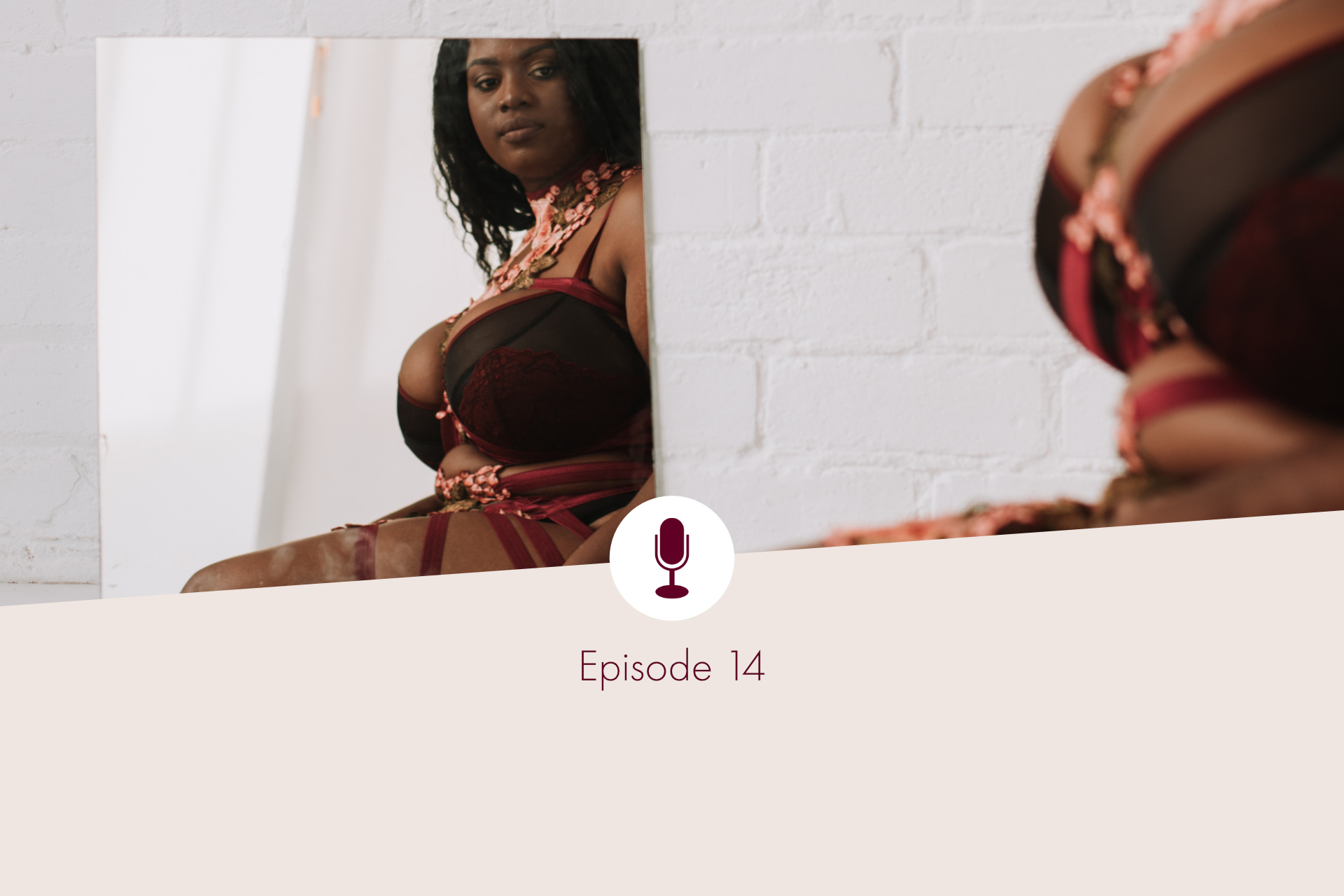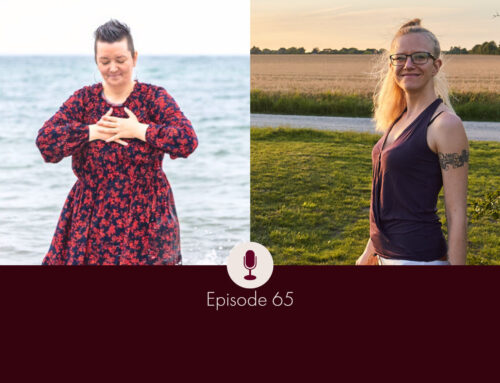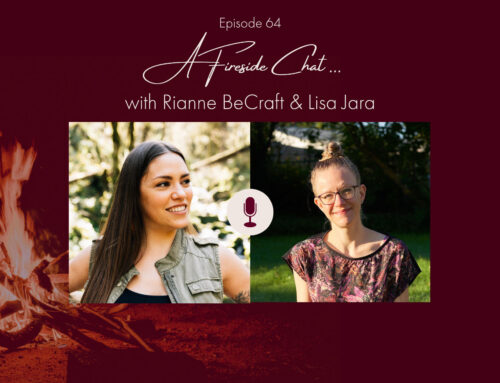[00:00:46] Hi and welcome everyone. Today I had, I mean really today, I had an epiphany, this morning when I did my morning practice, and I wanted to share it with you, even though it’s not yet completely thought through, I might ramble or stumble over my words. And the way I am, in my personality, and the way I’ve been raised, I should definitely not take up space, not your precious space and time and energy to ramble along, but I thought this would be really lovely to share. It might be beneficial to you and, yeah, it’s also good practice for me to, you know, not show up in my usual “I’m seeing this through from beginning to the end, all thought through and the topic exhaustively covered.” but no, today I feel very thoughtful and so I share this with you now.
[00:02:02] And the thing that came to me was about “Am I taking care of my body, or am I having a relationship?” And depending on where you are on your journey, where you come from, this might not even make a big difference, these two, taking care and having a relationship, but just in case you resonate with some of these aspects, because for me, taking care has a certain charge. It feels like responsibility and heaviness because we are often trained to take care of so many things already. So in case this doesn’t hold true for you, this charge in there, listen on anyway, because who knows, maybe there will be one or another nugget for you as well.
[00:03:02] Yeah, so this morning I was on my yoga mat. I didn’t even do yoga, I simply went into one, two poses and just rested there, let my thoughts flow. And I was reminded of my childhood, or rather my teenage years when I lived with my mother and I remember that, yes, we were taking care of our bodies, like we were going to the sauna, we were of course brushing our teeth, clipping our nails, we were putting cream on our face, on our feet, which carry us through the world all day long.
[00:03:48] But it always felt from a place of neutrality or even dissociation. Because I know that I, very early on in my life, understood how to dissociate from my body, meaning that when something needed to be done that I didn’t want, to my body, for example, a medical examination, and I didn’t feel comfortable with a doctor, but my mother was staying there and I needed to have that examination done, I could simply retreat into my mind. I could almost step out of my body for a little while, so people could do with my body whatever they needed to “take care” and then I could go on with my life.
[00:04:36] And I think I never really got back into my body. The separation has stayed with me since then, and I am only now beginning to heal this separation. And so the way we took care of our bodies in my home felt very perfunctory, like we did these things because that’s what you do to keep your body healthy. I mean, of course, you clean it so it doesn’t attract bacteria and all of that. But it was more like a thing to take care of, and I didn’t have a deeper connection with it.
[00:05:18] And this is not to blame anyone, especially not my mother. I mean, I know where she comes from and I know the generation she has grown up in and these things weren’t much talked about or even deemed important at the time, so I completely understand where it comes from. But our body is a living, breathing organism. And when I thought about it this morning that I have to take care of my body, well, actually I believe that she is – because my body, for me, I refer to her as she –she is taking much more care of me than I am of her.
[00:06:05] And I think that holds true for all of us because what our bodies do every day, regulating the hormone stuff, making sure we breathe enough, making sure our digestive system works and we have enough energy, I mean, all we really have to do is give our bodies some food and some water, some energy and sleep from time to time. And that’s basically all we need to do, apart from keeping it clean-ish, that’s actually all our bodies need from us.
[00:06:44] So it’s not even necessary to take care of our body, but our body is taking really good care of us. I believe our bodies just want the best for us, and I know that first-hand myself, coming from this anorexic journey. I’ve reflected on that a few times and I really appreciate that my body never gave up on me. You know, however little food I put into her, she made sure that she would get out the most of that to keep herself going so that we could continue moving through the world. And there’s really this deep reverence for her, for being so supportive no matter how harshly I treated her, no matter which insults I screamed at her on the inside, she was there and she just carried on. And yeah, it’s making me a little bit emotional right now, it’s really deep.
[00:07:54] And so I have two things, or two things came up this morning when I thought about this taking good care of my body. One thing is a responsibility aspect, and the other is a colonisation aspect, and I will touch on both.
[00:08:18] Starting with this responsibility aspect, if somebody tells me to take care of something and take good care of something, I immediately feel under pressure. For me, responsibility has always been very heavy and weighing me down. I know this is not the same for everyone, and by now I’ve learned to see a positive form of responsibility, this self-responsibility.
[00:08:46] But it very often still holds this negative charge, responsibility. It’s another thing on your to-do list that you have to make sure gets done. And it’s taking good care of my body, but not really knowing what she needs and what she wants, and not having a way to communicate and connect with her because, as I said, in our home it was more like a dissociation.
[00:09:17] I’ve witnessed this pattern in me for a while now that I often feel presented with a task that feels way bigger than me, that someone tells me I have to do without giving me instructions, making clear that failure is not an option, and with this doom that if I should fail at this task, that nobody’s really telling me about and definitely not helping me how to get there, that something really horrible will happen. I don’t know, I die, somebody dies, I don’t know exactly, but this feeling of impending doom is so strong. And I feel like that in many different situations in my life, but by now, I can recognise it and then I’m like, “Oh, that one again.” and then I can start working with it. And I have found some ways to process and find the openings and the possibilities again.
[00:10:25] But, yeah, for me it felt like “Take good care of your body, this thing that you don’t understand, that you don’t know anything about and that you can’t communicate with.” so it felt very overwhelming and I do believe that many of us have been told this, “You have to take good care of your body.” For me, it was another responsibility. I had to take care of so much already, in our household, the way I was raised, there were so many narratives, “You have to make sure you earn enough money. How will you ever earn money if you don’t here and there. You have to make sure that your clothes are clean. You have to make sure that they are in good shape. Don’t use them too much because then they won’t last as long. Make sure that you do all the protective measures that your shoes will last for, I don’t know, forever.”
[00:11:30] But with all of that, I had this body thing on top, which was another thing on top, and as I shared before, our bodies aren’t a thing. They are a living, breathing organism. They are a being. And so, what I believe is happening in our society as well is “Take good care of your body.” We’re told that, but we aren’t taught how to listen for what our body actually needs.
[00:12:00] And there is always something outside of us that tells us which is the “good” care, quote unquote. Like “This way is a good way of taking care of your body, and that’s a bad way.” This immense judgment that’s happening all the time, which isn’t true. There is not a one right way to treat your body and take good care of her, but there may be one right way for you. Or there may be many right ways and it’s just up to you to decide which one feels appropriate at this time.
[00:12:39] But this dynamic of “You have to do something good”, but what is deemed good comes from outside and not from inside. And so we don’t even question that. We don’t question, “Okay, but what does my body want or need?” We don’t learn it, and again, I know not everybody has had a similar experience, but I also know many women and menstruators who have had such an experience, and so taking care becomes a nuisance, another task of taking care of a thing that doesn’t function the way we want it, that doesn’t take the shape we want it to take, that doesn’t behave in the way that we want it to behave.
[00:13:25] And now this comes into this second part that I wanted to talk about, the colonisation, because this kind of taking care that I’ve talked about – and again, your flavour of what taking care means for you may be completely different, but the way I’ve been raised, from my family, felt more like coming through this lens of colonisation. You know, we’ve learned to see our body as this kind of wild animal that needs to be tamed and behave. And if it doesn’t behave and if you don’t get it to behave, there’s something wrong with you, which is BS! Big BS! Yet, that’s how colonisation works, right?
[00:14:22] So people, mostly from Europe, went to other countries and imposed their way of what they think is right and colonised, onto them. And they found people who were much more in tune with their body and nature, because our bodies are of nature, for example, the Native Americans, for example, the Africans. And they went there and they imposed their kind of civilisation on them. And everybody who was attuned to their own body, to their gut instinct, to their emotions, to the land, they tried to control. And I believe that’s similar to what’s happening in our bodies or with our bodies, that we’re trying to control them.
[00:15:17] We’re trying to control nature and that isn’t a good thing. It leaves us completely disconnected from our bodies, not attuned to what we really need. And that’s why I love menstrual cycle awareness or simply cycle awareness if you don’t have a menstrual cycle, but just being aware of the cycles in us and around us. That’s why for me, cycle awareness is a practice of decolonisation, of decolonising our body and these imposed structures, of trusting this animal body of ours to be wise in a way that doesn’t make sense to our logical brain. And I mean, yes, our brains are wonderful and they try to keep us alive with everything they do – and yet very often the thoughts we think or they give us to keep us alive aren’t very helpful to feeling like a joyful and thriving person.
[00:16:30] And so trusting this animal body, even though it doesn’t make sense to our brain. Our brains don’t understand it. But trusting that our bodies are connected to nature, as I shared, they are of nature, and they have much more information on everything because they are connected with everything. When we lean into that, into their wisdom, I think we would be better off than just trusting this brain of ours that just sees a small piece of the bigger picture.
[00:17:14] And another part that struck me about this colonisation aspect is that it sometimes seems like we think we own our body, we possess our body, like we own or possess land. Again, body, nature, land, nature, body. And we think we have to control it, we can own it, it’s ours. And I believe it’s about the stewardship, like we are stewarding the land, but we are also stewarding the body. It’s a co-creation between our whole, all parts of our systems, really, between the mind and the body, a co-creation and it’s rather that we are, our souls are allowed to live in this body and experience this world through our body in this lifetime. And so, actually, we are allowed to be here, it’s not that we have come to control.
[00:18:27] So for me it’s more about how can I build and have a relationship with my body, not taking care of her, because a relationship is also a living, breathing thing. And a relationship isn’t good or bad, you know? Yes, we sometimes say, “I have good relationship with that person.” or a bad relationship, but actually, a relationship is just what it is. And it’s a series of relations. And because we change all the time, because we humans change even from moment to moment, and the other person too, if we go from a person’s perspective – no wonder these relationships, they shift and morph all the time, because we are never the same. And so a relationship can be easy or difficult at times, but I don’t think that we can place a judgment of what’s good and what’s bad. We can say “This is an easeful one, that’s a difficult one. And what do I want to do about it? Do I want to try and change it? Does the other want to try and change it?”.
[00:19:38] And so the whole point of what I’m saying is to build a relationship with our body, having a relationship with our body from moment to moment. And that again, is why I find this practice of cycle awareness so important. And that’s for you, if you also feel like you want to build a relationship with your body, or have a more easeful relationship with your body. A thing you can start doing if you don’t already, is tracking. Is really just sitting down every morning for two minutes, it doesn’t have to be longer, but sitting down, writing down the day of your cycle or the date, and three words for how you are on that given day. Three words that express how your body, heart, mind, and soul system is. And then asking how you can honour that on that day.
[00:20:40] And I think that’s where it all starts, because it makes us aware that we are different every day, and the things that are on our plate every day are different. And it’s always a tallying of “How do I want this relationship to be and how can I stay with me while also allowing the other to be themselves?”
[00:21:05] And that’s the same for our body relationship, the relationship with our body. And even though you might feel vulnerable, angry, inward in the morning, how can you bring that into everything that’s on your plate that day? If it’s a full day and you have to go into meetings and you feel inward, I heard that from a mentor the other day, can you maybe in the beginning of the meeting ask everyone to have a check-in moment and just be with themselves, close their eyes for 30 seconds and then start the meeting.
[00:21:49] Yes, I know that you may think that it’s not, well, of course it’s not possible in every situation, but we often think that, for example, you can’t do that in a corporate setting. You can’t begin a meeting with 30 seconds of silence and tuning in. And how about you just try and see what happens? I mean, maybe it won’t work, and they will find they’ve wasted their time, and maybe they will be surprised what came through because you started the meeting from that grounded centre. So I just want to challenge you that even though, and I know, my brain does that too all the time, “But it doesn’t work in the situation.” What if it does? And we just try and be open to the result?
[00:22:40] And I think that over time, this way we can build a relationship, we can start building this communication and connection with our body and learn how to listen to our cues and also trust these cues. Because we’ve been told we can’t trust our body, our instincts.
[00:23:06] And I believe that regarding the colonisation aspect, that’s what the Europeans were so afraid of: of the power of those people that were in tune with themselves, that trusted their instincts fully because they were so powerful. And we can be, too. When I just think about tuning into my instincts, being out in nature, knowing the land, I can feel energy brimming in my fingers, and there’s this power that I have inside. Which is not a power over, a power to control, it’s a power that comes from within. And that just feels good for myself, that I am in charge of myself.
[00:23:59] If you would like some support with the cycle charting, I do have free resources on my website, so please have a look, download that sheet, listen to the video, it’s all on there. I also do write a weekly Soul Mail, a weekly Soul Letter, I should say, in my Soul Mail, where I share little snippets and pieces of my thought processes, of how we can move through the different phases we move through more easily, more joyfully. And of course, if you’ve got any questions, feel free to reach out. And I would of course also be very interested in what resonated maybe, or maybe didn’t resonate. What do you take away from this video today? I wish you a beautiful day and I’m sending much love to you.






